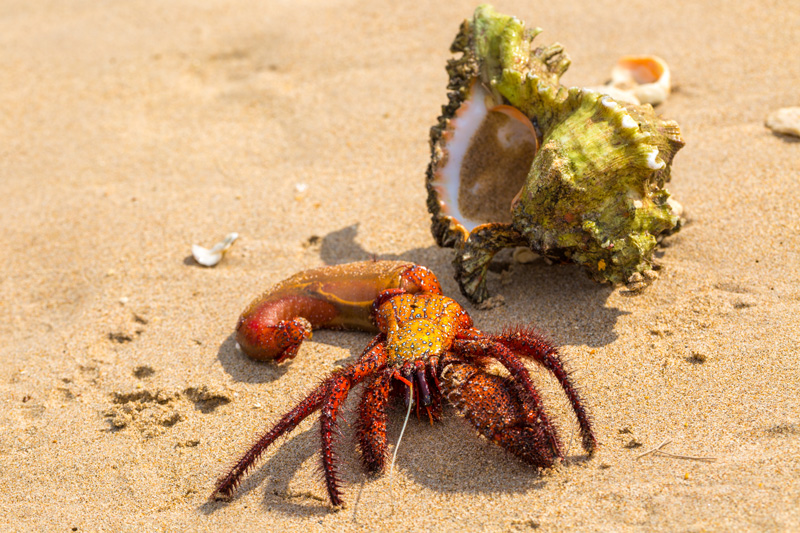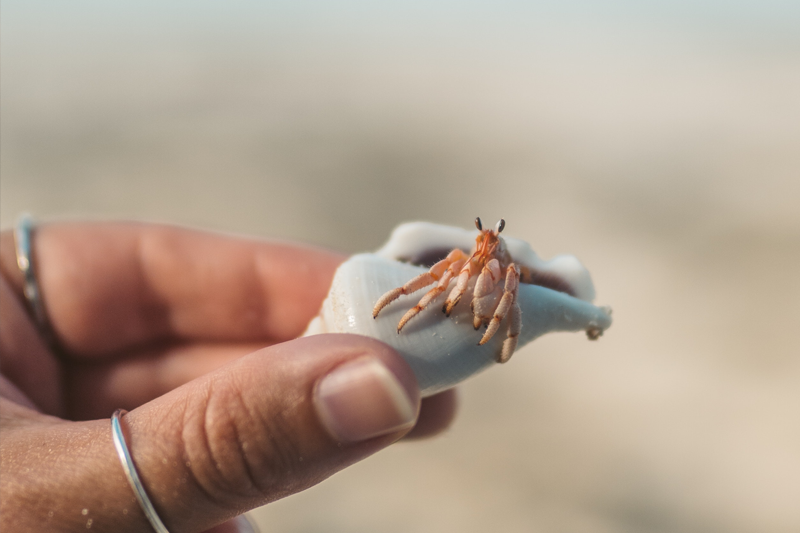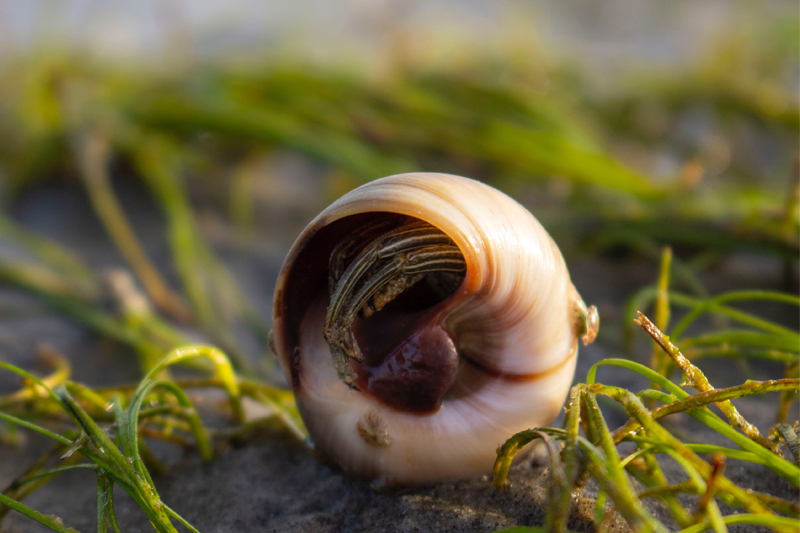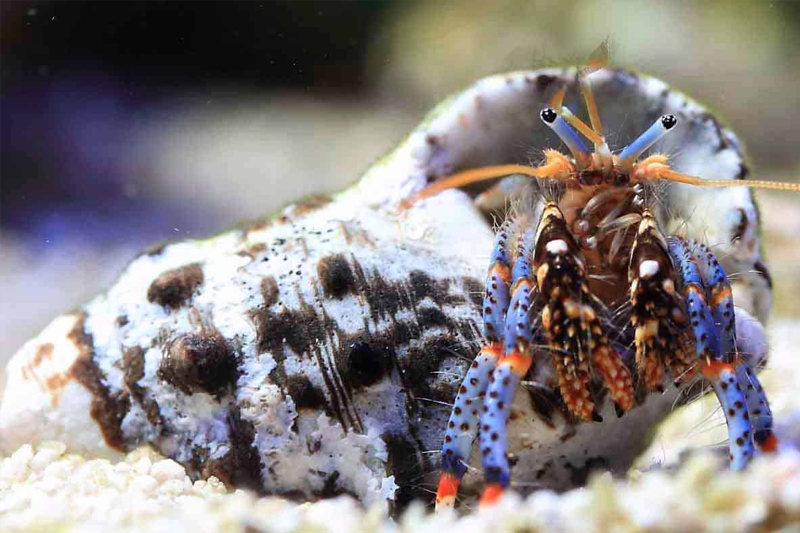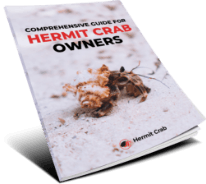If this happens to your crab, remember not to panic right away. This doesn’t always indicate that there’s something wrong. Hermit Crabs survives in borrowed shells to live in, so as they grow they also must adapt to the shell they live in. And as a hermit crab owner, it’s your responsibility to figure this out and assure that your little critter finds a new home and fast.
Signs & Symptoms of Shell Evacuation
Humidity in your hermit crab’s terrarium can be a factor if it’s too low or too high, note that the recommended humidity for the terrarium should range from 70% to 80%. Another factor is stress due to inaccessibility of its food, check your hermit crab’s food container, is too high for it to reach? Or is there another hermit crab bullying it and preventing it from feeding? You should check these.
Another thing you should check as well is there are stuff that might irritate your hermit crab such as mites or other parasites in the shell which is causing your crab to evacuate.
Prevention of Shell Evacuation
First off, make sure that humidity is at ideal levels. This is critical to a hermit crab’s health since they need enough moisture for them to breathe through their gills. So what can you do to check if there’s enough humidity in your terrarium? A hygrometer, this will assist you in making sure that humidity levels in the enclosure are good.
Use distilled water as well regularly in misting your crabs. This will help and keep your hermit crabs’ gills moisten.
Also, important to remember that the ideal temperature for your hermit crab’s terrarium is between 72 degrees to 80 degrees Fahrenheit (22-26 degrees celsius). Having and maintaining this temperature will keep your hermit crabs warm.
As for infections such as fungal and bacterial, it’s just a simple check if your hermit crab’s enclosure has enough air flow, assuring they are eating fresh food and removing any untouched food before mold grows on it. Also, make sure that their drinking water remains clean and changed on a regular basis. This will prevent the growth of mold or algae in their water that may harm them.
